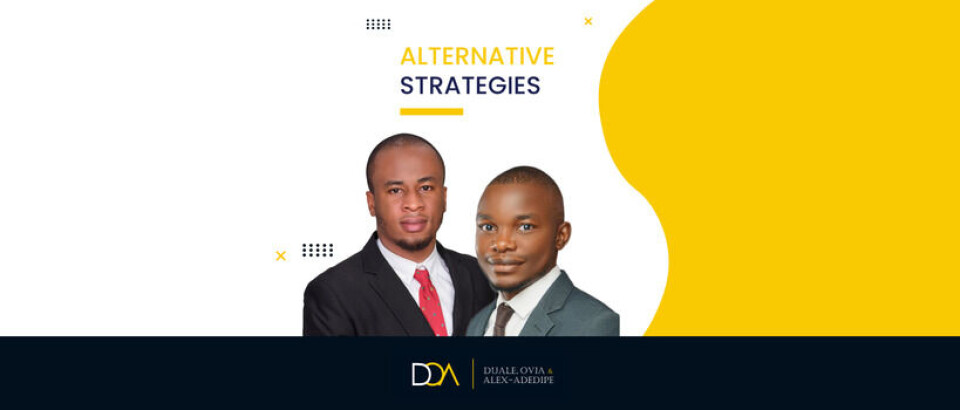Growing international investment in Africa will boost the continent’s economic growth, but will also lead to an increase in cross-border investment disputes and debt recovery claims, says Eze Okam, an associate at award-winning Nigerian firm Duale, Ovia & Alex-Adedipe (DOA).
DOA’s debt recovery practice has “grown tremendously in recent years”, said Okam. “We’ve successfully helped various clients make significant recoveries of debts which were written off as bad debts.”
“As a firm we’ve been involved in a lot of debt recovery on behalf of local and international clients who carry on business in various sectors,” added Osakwe, a senior associate in DOA’s Dispute Resolution Practice. He says that from the real estate sector, fast-moving consumer goods (FMCG) and banking, to fintech, oil and gas, and even education, many businesses have quite a large amount of debt.
Clients are increasingly putting together portfolios of debt – some of which they may already have written off – and handing it to firms like DOA to seek recovery. “Our success in this area is a testament to our understanding of our clients’ positions and needs, and the intricacies of debt recovery in a country like Nigeria,” Osakwe commented.
Traditionally most debt recovery was handled through the courts, but Okam and Osakwe note that, due to lengthy delays and potentially big costs if clients follow that route, their practice has increasingly looked, where appropriate, for alternative strategies to recover debt for clients.
“Given the experience we have in the recovery of debt, our practice has evolved and we have been able to devise alternative means of recovering debt through the rise of asset tracing and debt management,” Okam explained. DOA is also proactive when it comes to drafting contracts, so if obligations aren’t met, it’s easier for their clients to take steps for the recovery of debt.
Having good dispute resolution clauses in place allows DOA and their clients – which include the Asset Management Corporation of Nigeria (AMCON) – to know when to approach debt recovery through the courts, when to explore an amicable resolution through mediation (which can be adopted as a consent judgement, bridging the timeframe of lengthy litigation), and when to utilise DOA’s system of debt restructuring and settlement.
While there have been few legal or regulatory changes in this area, Okam and Osakwe say the practice of debt recovery has evolved due to an increasing use of alternative dispute resolution, including via the Lagos Multi-Door Courthouse and the state small claims court.
Okam explained that the Lagos State House of Assembly also recently passed into law the Administration of Civil Justice Law 2022. “Although the law has not yet been assented to by the governor of the state, the essence of it is to facilitate the just, timely and cost-effective resolution of disputes and other connected matters. The role of the courts in debt recovery action cannot be overemphasised, hence this new law is a welcome development.”
DOA has intentionally embraced technology, which is also having an impact on debt recovery.
Okam and Osakwe noted that the upgrades and digitalisation of registries for land titles and interests in publicly traded companies have made it easier to trace the assets of delinquent debtors, which can then be attached as a means to satisfy debt obligations and recover debt.
“Innovation is coming to expedite the process,” said Osakwe. “In Nigeria and across Africa, and with international arbitration, you’re seeing parties being able to digitise the process, conduct virtual hearings that save time and travel costs, and assist a lot in debt recovery.”
To join Africa Legal's mailing list please click here

